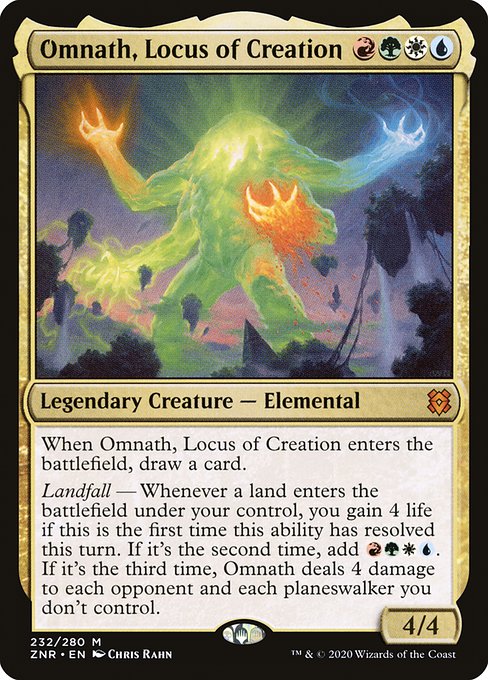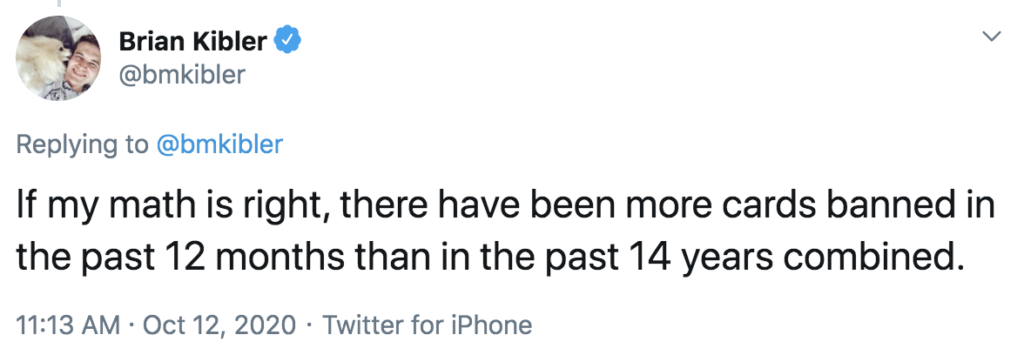Yesterday, Wizards of the Coast took a banhammer to the Standard format for the second time in as many weeks. While it was not surprising to see Omnath, Locus of Metagames get banned, it was unexpected to see Lucky Clover and Escape to the Wilds also head to the penalty box.

It’s difficult to understate just how important MTG Arena has become to Wizards of the Coast, not only as a platform for selling their flagship product, but also as an analytical tool to better understand how their game is being played.
It’s also hard to imagine Wizards being able to ban so many cards, so quickly, and so confidently in the days before Arena existed. Although Magic Online existed at the time, it does not work the same way as Arena in many respects, but perhaps most importantly with respect to matchmaking.
Ian Duke had a lot to say yesterday about the decision to ban three cards in Standard (as well as some changes in Historic and Brawl). The line that stood out the most to me was, with respect to Omnath in Historic Brawl where it will remain legal, “We will be using our Commander weighting system so that he will more frequently be paired against other, similarly powerful Commanders.”
Arena clearly provides Wizards of the Coast with a plethora of analytical tools that include more than just the raw data on matchup statistics. Wizards also, it seems, has the ability to use that data to make matchmaking decisions to improve the quality of the experience. (I think it’s safe to assume that this would only apply to unranked play.)
One of the most difficult jobs Wizards has is making the decision to ban cards from any competitive format. In the modern age of social media, it can be easy to be overwhelmed by the vocal complaints of a minority of players calling for certain cards to be removed.
While Omnath was a very obvious problem, a quick perusal of Twitter or Facebook will show a very wide range of cards that players would like to see go away forever, such as Teferi’s Tutelage or every single counterspell. If Wizards were to act impulsively on this information, consumer confidence would plummet.
Data-driven decision-making is the only reasonable way for Wizards to make these consequential changes. In the past, they relied heavily on in-person tournament data from events like Star City Games opens, Pro Tour Qualifiers, and Grand Prix—remember those?—as well as Magic Online data. The amount of data they must now be able to receive from Arena should dwarf anything they previously were able to collect.
Which brings us back to the two major improvements we’ve seen: turnaround time and proactive decision making. Wizards banned Uro, Titan of Nature’s Wrath less than two weeks after Zendikar Rising was released on Arena, and when that didn’t work, they banned Omnath, Locus of Creation two weeks later. And as Ian Duke explained, the fact was that even “without Omnath in the environment, ladder play data makes it clear that Adventure decks would remain as the strongest strategy,” leading to the decision to also ban Lucky Clover.
All of this of course is not meant to excuse or justify the rapid rate at which cards are being banned in Standard, all of which points to an obvious shift in the direction of design. Wizards has clearly become somewhat loose with previous concerns about the upper-end of the power-level of the game.
One has to wonder, however, if Arena’s analytics and how the platform provides them the ability to make quicker, more effective decisions around banning cards has been a driving force behind the decision to increase the power level of the game.

It remains to be seen if this shift will pay off for Wizards of the Coast. As Brian Kibler pointed out on Twitter, Wizards has banned more cards in Standard in the past 12 months than in the previous 14 years combined.
That kind of shift can have devastating consequences for consumer confidence, and that clearly needs to be balanced by an increase in the enjoyment and/or accessibility of the game. That said, banning cards in Standard only affects a specific segment of the consumer market; and with the growth of Arena, that segment may be a rapidly shrinking part of Wizards business model.
Arena could be ushering in a new age of unfettered power levels for Standard, as the business continues its (COVID-fueled) move away from reliance on competitive paper Magic as a marketing machine, and they double down on the digital platform.

